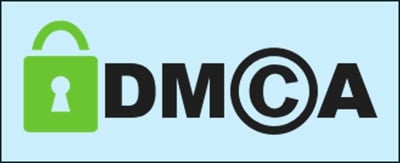
What is DMCA?
The Digital Millennium Copyright Act – often called ‘the DMCA’ – is a law which helps copyright holders have content they hold copyright for removed from websites and service engines if it has been used online without their permission. The Act provides web hosts and internet services protection from copyright infringement claims as long as they act quickly to remove infringing material when they are properly notified.
You can find more information on the Digital Millennium Copyright Act from the United States copyright office here.
What does this policy cover?
This policy provides you with information on how to correctly notify Crime Traveller of a copyright infringement. A DMCA takedown notice is a notification to a company, usually a web host or a search engine, that they are either hosting or linking to copyright-infringing material. By providing this information, you will notify Crime Traveller to remove or disable access to any such material.
If you are not sure whether material located on a Crime Traveller infringes your copyright, or if it is subject to fair use protections, you should first consider seeking legal advice.
DMCA Notice Procedure
If you are an intellectual property rights owner and you believe any material or content on Crime Traveller infringes your intellectual property rights, please send a notice of copyright infringement providing the information described below.
All notifications should include the following:
- A physical or electronic signature of a person authorized to act on behalf of the owner of an exclusive right that is allegedly infringed.
- Identification of the copyrighted work claimed to have been infringed, or, if multiple copyrighted works at a single online site are covered by a single notification, a representative list of such works at that site.
- Identification of the material that is claimed to be infringing or to be the subject of infringing activity and that is to be removed or access to which is to be disabled, and information reasonably sufficient to permit the service provider to locate the material (i.e. the website address where the material is published).
- Information reasonably sufficient to permit the service provider to contact the complaining party, such as an address, telephone number, and, if available, an electronic mail address at which the complaining party may be contacted.
- A statement that the complaining party has a good faith belief that use of the material in the manner complained of is not authorized by the copyright owner, its agent, or the law.
- A statement that the information in the notification is accurate, and under penalty of perjury, that the complaining party is authorized to act on behalf of the owner of an exclusive right that is allegedly infringed.
Notifications of copyright infringement should be sent to [email protected].
